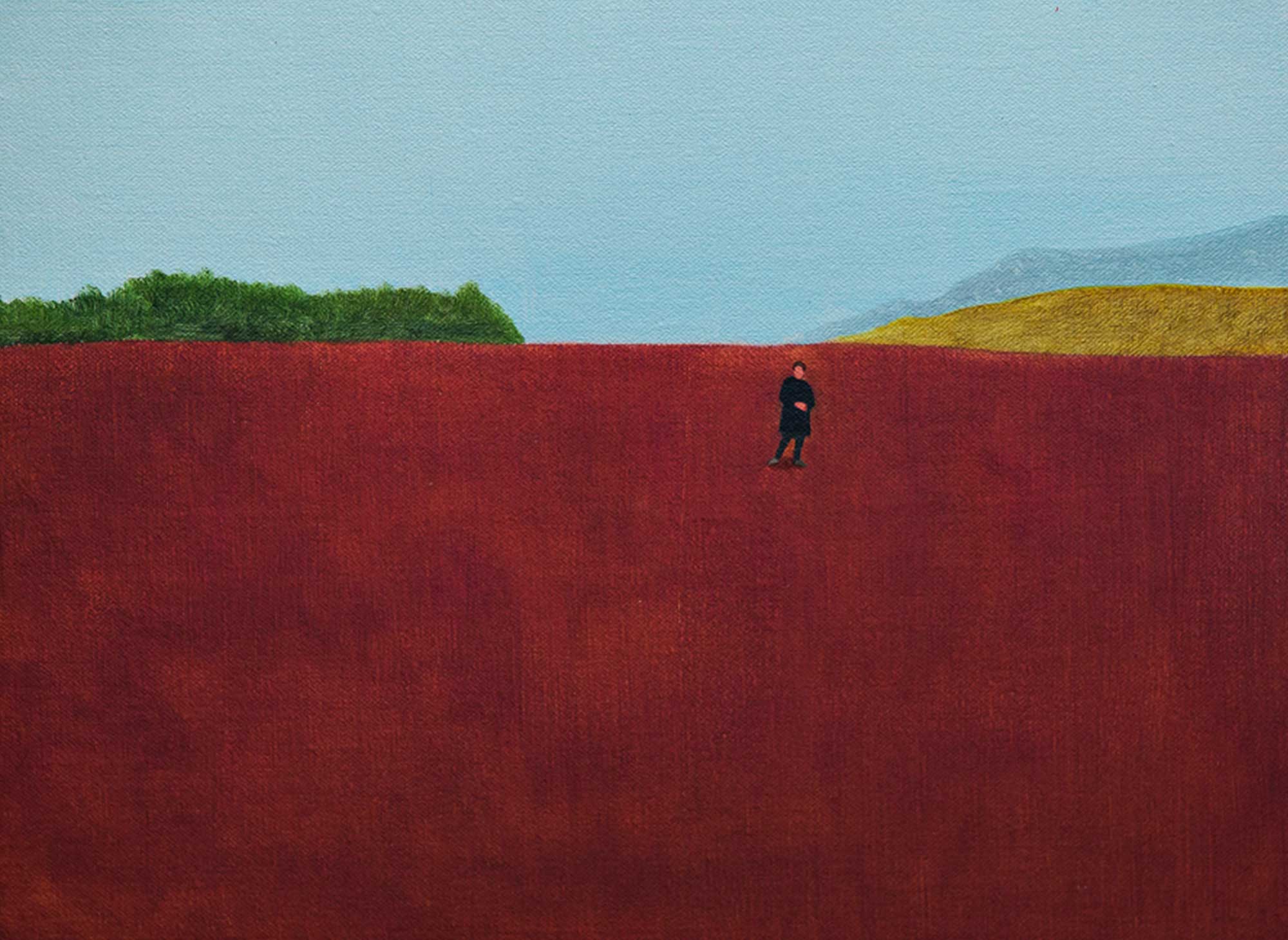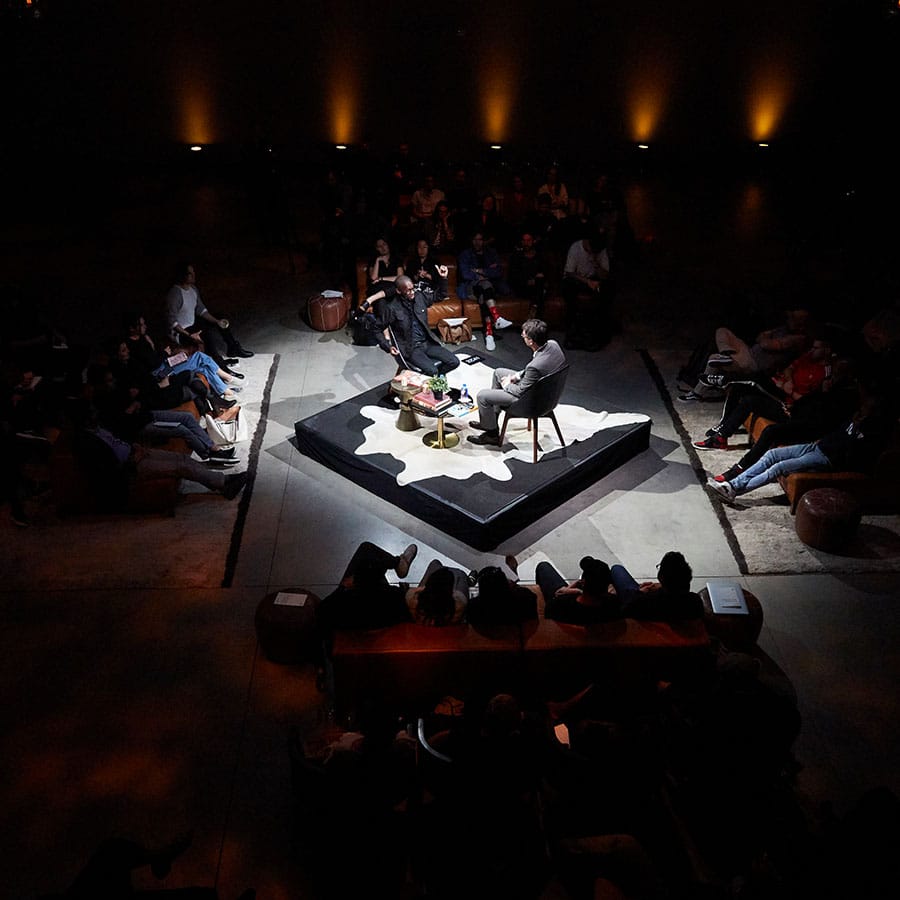“As late as 2019, we as a society had been steadily getting to the point where isolation was considered a problem, one of the great tech problems.”
We had all been getting used to the idea that the slump towards our phones and away from other people wasn’t exactly healthy. But what was unforeseen at the beginning of 2020 was the way a virus would intervene to shove isolation upon us, to make it the only viable option in life, the preferred way to spend our days, distanced from others and wiping down the screens of devices that only back in December might have been considered part of the problem. Now these same screens had been magically forgiven, absolved.
They were serving valiantly as our only link to the fizz and excitement of the outside world. Let’s look at isolation. The first definition we’re given is ‘to be or remain alone’ and back when we were still allowed to be together, we were starting to clock the amount of time we spent alone. We were cognizant of isolation. Our phones buzzed with screen time warnings. Don’t isolate, don’t dive into your phone world. Look at that aged boomer who’s given up interaction with his family in order to plunge into Facebook.
“Who would have guessed we’d ever need to pay attention to the second dictionary definition of isolation, following hard upon the first.”
The word, according to the Oxford Dictionary of English, also meant ‘to place a person or animal in quarantine as a precaution’. In only a few short weeks, the second definition of the word leapfrogged the first. But does isolation become any better for our mental health just because everyone is doing it? Here’s the question we’re now faced with: What truly breaks through isolation? It’s not an easily accessed answer.
The problem is philosophical. What is not being alone? What is connection? What counts as a meaningful interaction? Can we scramble to find ways to lessen our isolation that don’t come with their own nasty array of side effects, like the sapped and empty feeling that arrives after a three-hour Zoom session with distracted co-workers, or online conversations with friends weakened by looking at someone who is obviously not paying attention to you?

“This is no longer an academic point. For the next year, and surely longer, connection will be redefined, and a surplus of voices want to tell us how tech will succeed in writing this new definition. Apps lead, designers lead. But is there a deeper, more meaningful connection going on in the background? ”
At the beginning of April, a new startup was introduced, and already the description of its service sounded like a chore – though, to be fair, the same could be said for dating apps when they were introduced. The founders of the startup, Twine, made their aim clear: they want to ‘help people feel less isolated and alone.’ Here’s where the cringing comes in.
Twine is described as ‘Zoom for meeting people’, ‘a video chat experience where people are encouraged to have meaningful discussions that spark new friendships.’ People are asked to codify the experience and follow enough rules to simulate an organic experience. ‘In Twine,’ TechCrunch reported, ‘users are matched with four other partners who they’ll have 1-1 conversation with for eight minutes apiece. The full gathering lasts for a total of 40 minutes.’
I know, I know, we’ve learned enough to know that in the world of technology the unpalatable soon becomes the realistic. But these face-to-faces won’t proceed as they do in real life; you’ll be pushed towards meaning. Twine would like to, without hesitation, smash apart isolation quickly, as participants get to choose from a library of more than 250 ‘deep’ questions, then get matched with partners who want ‘to explore the same topics.’
The experience is meant to ensure we quickly, with great efficiency, conquer isolation, we sort of forcefully build meaning from a set of pre-molded blocks. The focus is on friendship, say the founders, but what sort of friendship can be forged at speed with these available materials?
“Back in the pre-virus era, the dating app world allowed people to build an edifice of expectation from messages and doctored photos, but the real world always served as the great leveler. ”

Will a person genuinely feel less isolated within these new frameworks, or do we have to perhaps start splintering and redefining a concept like isolation? What’s becoming apparent is that tech works best when it serves as a solidifier, when it augments an existent bond. Right now, in the midst of a pandemic, it’s working well as a ‘that’ll do’ mechanism for those on lockdown. It takes care of a brand of nostalgic isolation. I remember what this person was like, and so their tinny voice and their backlit image on Zoom ties me to what came before.
But how will we forge a tool to help with these other subsets of isolation, staring at a screen, trying – as the founders of Twine would like us to do – to perform our most authentic feelings and deeply held beliefs to a jittery figure on a 5G connection – to someone we don’t know. Someone we’d perhaps like to know.
We’ve lost our ability to put into action the skills we employ when we usually build bridges out of our isolation. Is this new person worth it? What will small talk with them tell me? How do they move through space? How do they speak? Twine acknowledges there is a risk of ‘chatting openly with strangers about highly personal topics.’ They even feature non-binding guidelines that ask users to not, for instance, discuss someone’s tender spiritual beliefs with others.
But isn’t the problem here one of performance? We will now have to dispel isolation through a very particular performance that takes place in a square, on a screen, repeated and repeated to a succession of strangers. The danger is that after these performances – even those that purport to be about ‘going straight to what matters’ – will result in a hollowness that is even more acute when we log off, even worse for our mental health. How will technology address that?
“Is there a way that tech could help us find authenticity without performance? Isn’t that the only way to deal honestly with feelings of isolation?”



